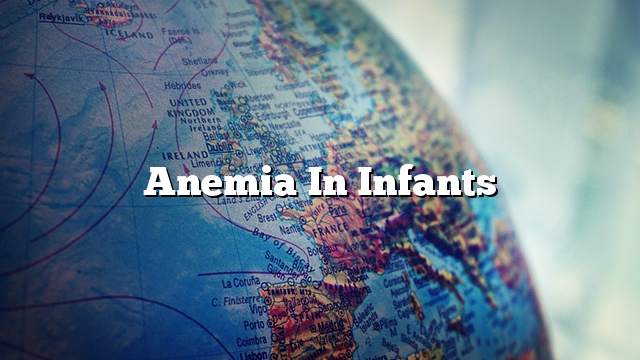Anemia
Blood cells are composed of red blood cells, white blood cells and blood platelets. Red blood cells are responsible for the transfer of food and oxygen from the heart to all parts of the body, so the cells of the body need these pellets to be able to work.
Blood needs an iron component to produce hemoglobin or red blood cells. When iron is low and the body does not get daily iron, it has anemia or anemia.
Anemia can also result from severe bleeding or certain genetic diseases, but iron deficiency is the most common cause of anemia.
There is no age group or sex that is restricted to anemia, but anyone who lacks iron can be infected with iron. However, children, especially infants, are considered to be the most dangerous age groups, because their immune systems and other organs Growth and imperfection that could threaten their lives.
Anemia in children
Deep studies of neonates indicate that they are born and have enough iron for their daily needs for four months. After four months, however, the size of the baby increases threefold and the amount of stored iron decreases. This requires more iron for the baby to meet his daily needs. Diet for the baby of this substance it gets anemia.
Anemia is not a disease in itself but it is a symptom of malnutrition and may lead to fatigue, tiredness and fatigue in children. In some severe cases, the child may become stunted and stunted.
Protecting infants from anemia
- Focus on giving the baby breast milk until the age of six months, and the nursing mother should take dietary supplements containing iron.
- The intake of iron-containing foods in the child’s diet gradually increases after 6 months, such as red meat, fish, fruits and vegetables, but it is preferable to eat animal products and fish because the process of absorption of iron is faster than in vegetables and fruits. At the same time, Under the age of the year cow’s milk or tea because they inhibit the absorption of iron.
- Baby consumption of vitamin C is helping to absorb iron from foods.
- Give the child iron supplements after the fourth month of age under medical supervision.
